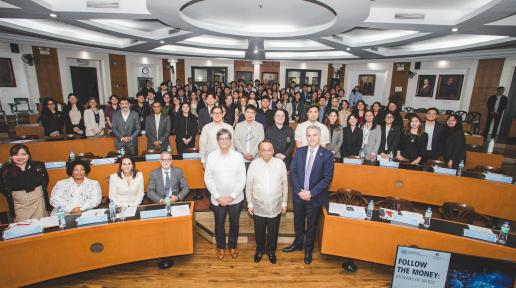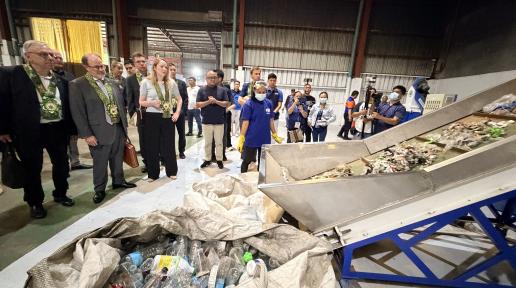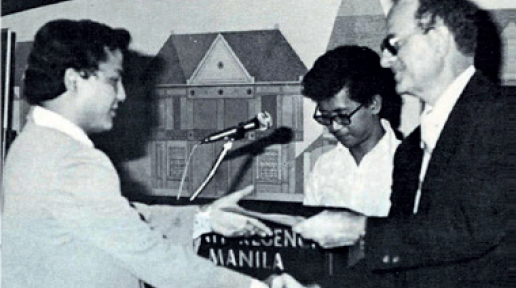Story
04 February 2026
Freedom, calculated: New tool brings clarity to prison release dates in the Philippines
Quezon City (the Philippines), XX February 2026 – For many prisoners in the Philippines, the question of when their freedom will be regained has long been clouded by uncertainty. Last month, that uncertainty began to give way to clarity with the launch of the Laya Calculator, a new web-based tool designed to help determine accurate prisoner release dates.In most jurisdictions, release dates are computed simply by adding the length of an imprisonment penalty to the date when one enters detention. In the Philippines, however, prisoner release dates depend on several data points, including arrest dates, police detention, pretrial confinement, sentence service and earned sentence-reducing credit, to name only a few.While corrections agencies are mandated to maintain prisoner records, including tracking of release dates, limited capacity and technical constraints pose serious obstacles to complying with this mandate.Most frontline records officers still adhere to manual, paper-based calculations, which are prone to errors, inconsistencies and delays. These gaps leave a corrections system that is unable to keep an up-to-date record of sentence-reducing credit, and release dates.As a result, many people deprived of liberty remain unaware of their expected release dates, which has serious implications for due process, transparency and the protection of fundamental rights.Meanwhile, the wider justice community outside the corrections sector in the Philippines has insufficient access to appropriate computation tools. Without the ability to access information on prisoner release dates, justice stakeholders are left unable to effectively advocate for a prisoner’s right to a timely release and against arbitrary detention. These challenges result in inordinate delays of prisoner releases and severe prison congestion. To overcome this, the UN Office on Drugs and Crime (UNODC) in partnership with the Philippines’ Commission on Human Rights, developed the Laya Calculator, which was officially unveiled as part of the country’s National Human Rights Consciousness Week last month.Designed with accessibility in mind, the Laya Calculator project aims to help a broad set of justice stakeholders to carry out prisoner release date computations. It is designed not only for corrections professionals, but also for legal aid providers, public attorneys, court officers and even prisoners themselves and their families.“Before, we had no idea how the date of release was computed by authorities... Now we can do it ourselves through our families,” said a prisoner.By equipping justice stakeholders, the Calculator acts as a force multiplier for prisoner advocacy.Counting the days, done rightThe calculator operates with a minimal amount of basic information relating to a person’s imprisonment. It generates a set of precise release dates based on the duration of minimum and maximum imprisonment penalties, and adjusted by sentence-reducing credits earned.The Laya Calculator began as a programmed spreadsheet co-designed with local stakeholders and was later validated by UNODC’s Korea Statistics Center of Excellence. It was piloted in Zamboanga City Jail and Negros Occidental District Jail in 2024. Since then, the Calculator has evolved into a simplified, web-based application that is freely accessible online, democratizing access to a set of prisoner information that is otherwise difficult to obtain. By streamlining otherwise complex computations, the Laya Calculator facilitates accurate record-keeping. This is aligned with the Nelson Mandela Rules, which requires that upon admission of every prisoner, the date of his or her prospective release should be tracked, properly recorded, kept up-to-date and accessible to the prisoners.“When a 40-year sentence can become just 17 years and 13 days with complete sentence [reducing] credits, we see how life-changing accurate computations can be. The Laya Calculator helps ensure no one stays a day longer than the law requires,” said Dr. Ian Niccolo Tobia, UNODC Crime Prevention and Criminal Justice National Programme Officer.In the coming months, UNODC and the Philippines will begin the national roll-out of the Laya Calculator. To use the Laya Calculator, click here.Find out more about UNODC’s prison reform work in the Philippines:UNODC introduces guide on Islamic practices for prison officersBooks offer novel way to counter prison overcrowding in the PhilippinesFirst Person: Filipino elderly ex-prisoner’s joy of ‘sleeping and eating’Philippines' first model prison is borne out of terrorist conflictLess ‘sleeping like sardines’, as Philippines adopts Nelson Mandela Rules for jailsThe Philippines addresses jails and prisons overcrowdingThe story was first published here.













